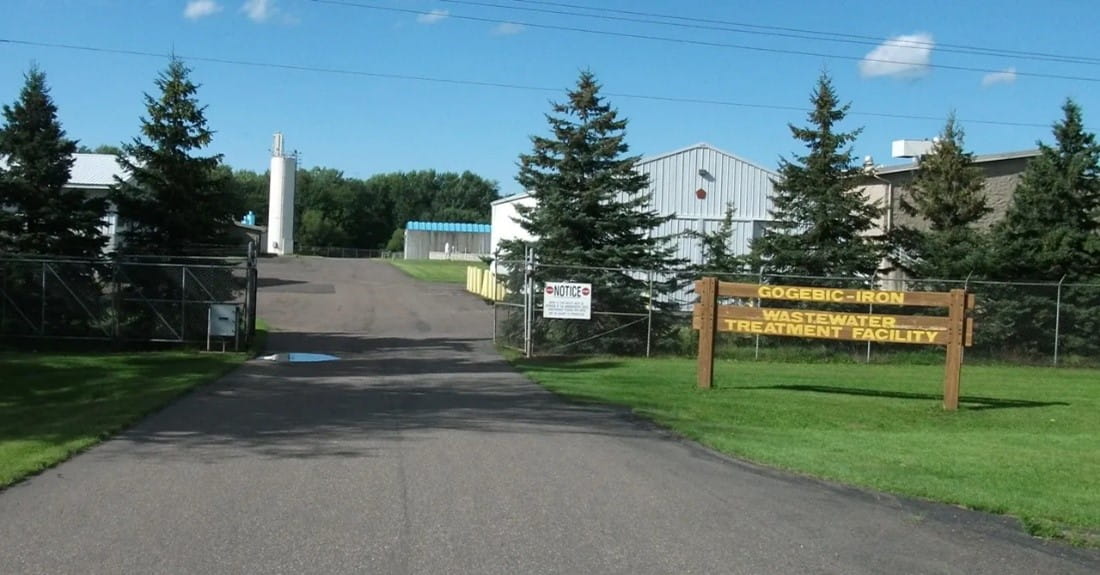The web Browser you are currently using is unsupported, and some features of this site may not work as intended. Please update to a modern browser such as Chrome, Firefox or Edge to experience all features Michigan.gov has to offer.
By the Numbers: Upper Peninsula wastewater treatment upgrades among 40 State Revolving Fund projects authorized with water infrastructure funds in 2023
December 20, 2023
Construction has started on an Upper Peninsula wastewater project that will improve water quality in rivers that flow through the Gogebic Range and into Lake Superior.

Gogebic-Iron Wastewater Treatment Facility.
The Gogebic-Iron Wastewater Authority (GIWA) is upgrading its aging treatment facility, thanks to a low-interest loan from the Clean Water State Revolving Fund (CWSRF) paired with an American Rescue Plan (ARP) grant. It’s one of the 40 projects financed in fiscal year 2023 – a year that has saw a record amount of funding.
GIWA handles wastewater treatment for the City of Ironwood, Ironwood Township, and the City of Hurley, Wisconsin serving 9,267 customers including residents and commercial businesses. For 30 years, the GIWA Wastewater Treatment Facility (WWTF) has effectively treated wastewater in the western Upper Peninsula region with minimal upgrades to the facility leading to escalating deterioration, outdated equipment, and a system that has had multiple fecal limit violations.
With a low-interest loan from the CWSRF, coupled with a paired with an ARP grant, the GIWA is undertaking a project to improve multiple facets of the WWTF, including upgrading to a Class A biosystems treatment process.
With these upgrades, GIWA will be able to replace equipment that is at the end of its useful life, improve treatment efficiency, and eliminate future fecal violations. This project is crucial to protecting water quality in the western Upper Peninsula and northern Wisconsin regions, as the WWTF discharges to the Montreal River which serves as a border between Michigan and Wisconsin in western Gogebic County. The river flows through the Gogebic Range eventually discharging to Lake Superior, providing numerous recreational opportunities from fishing and rafting to wildlife and waterfall viewing.
GIWA was identified by EGLE as a significantly overburdened applicant and as a result, was awarded a $20,000,000 ARP grant to assist with total project costs of $32,085,000. The remaining portion of the project was financed with a $12,085,000 CWSRF loan with below market terms that include a 30-year repayment period at a 1.875% interest rate. Construction began in this fall and is projected to finish in the winter of 2024. The assistance made available by EGLE will significantly reduce the rate impact to the customers of the system, while protecting the Montreal River as a valuable resource to both Michigan and Wisconsin.
EGLE’s CWSRF loan program had a historic year in 2023. A total of 40 projects received a combination of $194 million in ARP grants and $725 million in CWSRF low-interest loans with $67 million of the loan total awarded as loan principal forgiveness.
Check out the Michigan Water Infrastructure Funding and Financing Dashboard for more information.